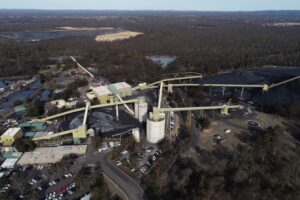Proposed changes to the Emissions Reduction Fund that could allow the federal agriculture minister to veto proposed carbon abatement projects have been slammed by a key industry body, which says there’s little evidence such powers are justified.
The Morrison government is considering granting the federal agriculture minister potential veto powers over proposed ‘carbon farming’ projects – including revegetation and native forest regrowth projects – due to concerns the projects may reduce the amount of land available for agriculture.
The proposed rule changes would apply to projects that seek to store carbon in regrown forests or in areas undergoing regeneration, including areas where land has been cleared for agricultural use.
Such carbon offset projects are covered by two methodologies under the Emissions Reduction Fund; the human-induced regeneration (HIR) method and the native forest from managed regrowth (NFMR) method. Around 95 per cent of the carbon abatement purchased by the federal government under the Emissions Reduction Fund have used either of these two methods.
The Department of Industry, Science, Energy and Resources released a consultation draft of the new rules late last year, establishing a new “category” of carbon offset projects that would be excluded from participating in the Emissions Reduction Fund.
Under the proposed rules, the federal agriculture minister would have the power to designate particular projects as being within the excluded category, when they “are bigger than 15 hectares and make up more than a third of a farm”, in an attempt to limit the amount of agricultural land that may be locked up by the revegetation projects.
“It is important to ensure that such projects do not have unintended adverse effects on local communities through inadequate management of weeds, pests and fire risks, or through negative impacts on agricultural production or regional communities,” the consultation paper says.
“The Government is consulting on potential changes to the Rule to exclude projects that would have a material adverse impact on local communities and agricultural production and to improve monitoring of compliance with rules to manage pests and weeds.”
There are fears that the exclusion of projects using the two methodologies could cut off a significant source of Australian Carbon Credit Units (ACCUs), which can be sold to the government under the Emissions Reduction Fund, or sold to the growing number of corporate emitters looking for ways to offset their emissions footprint.
ACCUs have become increasingly lucrative for carbon offset projects and landholders and have almost quadrupled in price – nearing $60 per tonne – over the last 12-months.
The proposed changes have been panned by the Carbon Market Institute, which represents carbon offset projects and carbon market traders, which said there was no evidence suggesting the need for the new powers and that the government had not undertaken sufficient consultation with potential stakeholders.
The department sought stakeholder feedback on the proposed changes in mid-December and closed the consultation to new submissions on 14 January – meaning much of the consultation period spanned the summer holiday period.
CMI CEO John Connor said the reforms could also undermine government compliance efforts and the emergence of a voluntary market for carbon offsets.
“Unsupported by any firm evidence, this is an extraordinary double whammy proposal from a Liberal National government. It is a direct intervention into landholder decision making and imposes excessive red tape,” Connor said.
“The proposals risk supply to the Government’s flagship climate market, the Emission Reduction Fund, and to corporates investing in the Safeguard Mechanism compliance as well as the voluntary markets the government has been encouraging.”
“Rather than being beneficial for regional Australia, the restrictions would have a disproportionate impact on landholders, particularly smaller farmers, and their decision making. They add unnecessary administrative burden, potentially delaying investment into regional areas, sustainable agriculture and drought resilience as well as goals for emission reduction and to reverse deforestation by 2030.”
CMI has called on the federal government to postpone the potential implementation of the rule changes – at least until after the next Emissions Reduction Fund auction expected to be held in April – as well as clarifying any possible appeal and review rights that affected offset projects may have.
“Detailed research has already commenced into these concerns, and until this is complete, along with the reviews set to be undertaken by Climate Change Authority at the request of both major parties, the proposal’s consideration should be postponed,” Connor added.
The rule changes may be made through a legislative instrument issued by the minister for industry, energy and emissions reduction, Angus Taylor. Such an instrument will not need approval from federal parliament and could be in place before the next election.
RenewEconomy is seeking your feedback. Our websites and daily newsletters are proudly free to access for all readers and subscribers. But what sort of added features, data and specialist editorial content would you be willing to pay for? Please complete this three-minute readership survey to help us weigh our options. Thank you!









